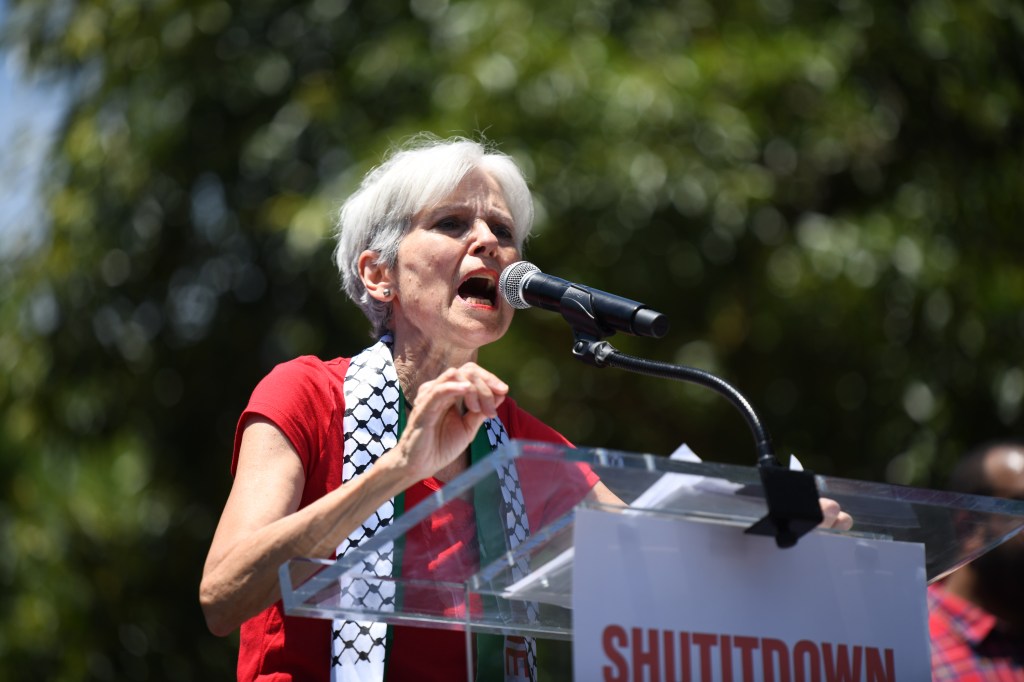Robert F. Kennedy Jr.'s independent presidential campaign filed a candidacy petition with the state Board of Elections on Monday to appear on Illinois' Nov. 5 general election ballot.
Also filing independent and third-party presidential nominations before the 5 p.m. deadline were Jill Stein, the Green Party candidate in 2012 and 2016, as well as candidates from the Libertarian and Constitution parties.
Kennedy, the controversial scion of a storied political family, ran alongside his running mate, lawyer and philanthropist Nicole Shanahan, who initially sought the Democratic nomination but later decided to run as an independent.
If no objections are raised to their candidacy papers, the candidates who filed their candidacy papers on Monday will join Democrat Joseph Biden and former Republican President Donald Trump in Illinois' fall elections with the major party nominations expected to be formally announced later this summer.
Trump's formal nomination will take place at the Republican National Convention in Milwaukee in mid-July. Biden is expected to be nominated by Democratic leaders before the party's national convention begins in Chicago on Aug. 19, to get around the timing of an Ohio law that bars the president from appearing on the state's ballot.
Kennedy is the son of the late Attorney General Robert F. Kennedy, a one-time presidential candidate, and the nephew of the late President John F. Kennedy, but many of his family members have voiced opposition to his candidacy because of his controversial views on health issues.
The same day that Kennedy filed the Illinois lawsuit, the US Supreme Court refused without comment to hear two coronavirus-related appeals brought by Children's Health Defense, the anti-vaccination group that Kennedy founded and led before announcing his presidential candidacy.
The group is challenging the U.S. Food and Drug Administration's emergency use authorization of a COVID-19 vaccine, arguing that the vaccine is “ineffective and lacked proper review.” Lower courts have ruled that the group lacks standing to sue.
The group also filed a lawsuit challenging Rutgers University's COVID-19 vaccination mandate, after a different lower court ruled that the group had not stated a “plausible claim for relief.”
Kennedy did not qualify for Thursday's presidential debate between Biden and Trump on CNN. Kennedy needed to receive at least 15% support in four national polls by Thursday, but met that requirement in only three of them. At the time the debate closed, he did not have enough state votes to secure the 270 electoral votes needed to win the presidency.
As of last month, Kennedy was eligible to vote in 10 states.
Independent and third-party candidates were required to submit a petition with at least 25,000 valid registered voter signatures to appear on the ballot.
Democrats who supported Hillary Clinton view Stein as an obstructionist in the 2016 election. Though she received only 1% of the national vote, her votes in Michigan, Pennsylvania and Wisconsin would have overturned Trump's narrow victories in those states if they had gone to Clinton.
Stein, who was born in Chicago and raised in Highland Park, is the Green Party's presumptive nominee. Samson Kpadenou of Florida is running as her running mate. She and Kpadenou are expected to be formally nominated at the party's virtual convention, which runs Aug. 15-18.
Also running are Constitution Party presidential nominee Randall Terry of Tennessee and vice presidential nominee Steven Broden of Texas, along with Libertarian Party vice presidential nominee Chase Oliver of Georgia and Florida's Mike Ter-Martin.
Political activist and author Cornel West was the highest-profile independent presidential candidate not to appear on the Illinois ballot.
Two Illinois residents also filed to run for president but were formally removed for lack of valid signatures: one listed an address at the Ford County Jail, the other a post office box in Peoria.

